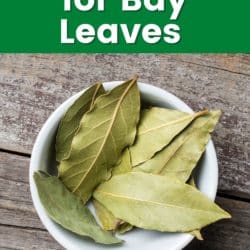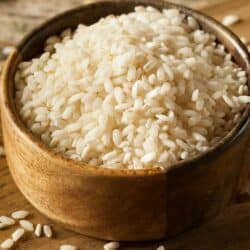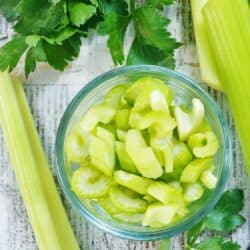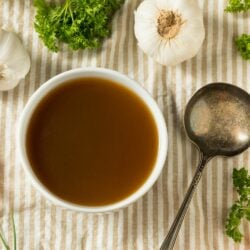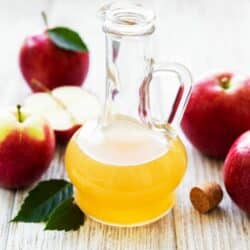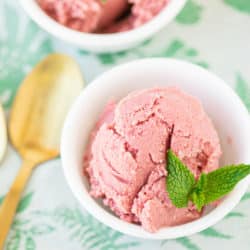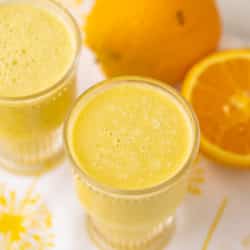5 Easy Substitutes for Bay Leaves (Soup & Cooking)
Bay leaves are a wonderful flavoring for your savory dishes. Learn the benefits of using bay leaves in your cooking, and what are the five simple substitutes for bay leaves for soups, stews, and other recipes to add depth of flavor.
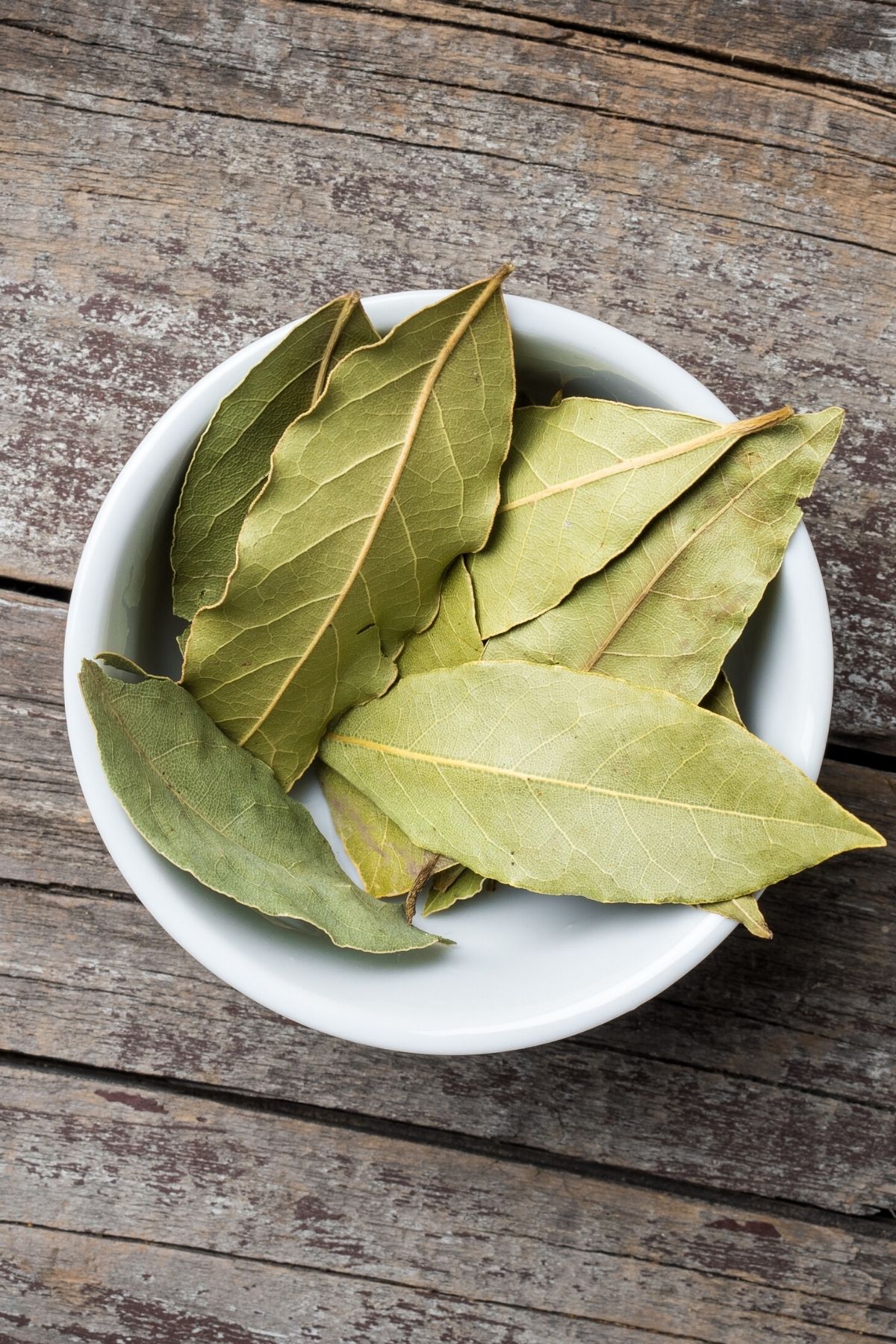
Bay leaves are not your typical herbs. Unlike seasonings such as dried thyme or oregano, they don’t have a particularly strong aroma, neither do they taste very strong.
They originate from the Mediterranean region and are also known as laurel leaves. The fresh leaves from from a bay tree and they’ve been used in cooking since ancient times.
Now, bay trees grow in lots of places around the world including North America. You can find a California bay leaf, Indian bay leaf, and Turkish bay leaves!
But when bay leaves are cooked with a liquid – in soups, stews, or sauces, for example – they impart a subtle flavor, which some people describe as a slightly bitter combination of spice and mint.
Using bay leaves in your cooking adds depth to the dish and helps bring out the flavors of the other ingredients in the recipe.
Although bay leaves are sold fresh and dried, the dried leaves are much easier to find and much more popular than fresh bay leaves. They are cheaper, last longer, and have a more intense flavor.
It is always best to add them at the start of the cooking time because the longer they are simmering, the more flavor they will release into your dish.
I often use them in recipes like my Instant Pot Pork Chops and Rice, Slow Cooked Cabbage, or Coconut Curry.
Bay Leaf Substitutes
If your recipe calls for bay leaves and you’ve just discovered that you’re all out, you’ll be pleased to hear that there are several other ingredients you can use in their place!
What’s more, many of them are common herbs and spices that you’ll likely have in your pantry already.
Because the flavor of bay leaves is quite unique, none of these may be an exact match. However, they are all close enough to make your dish taste very similar and save you a trip to the grocery store.
1. Dried oregano
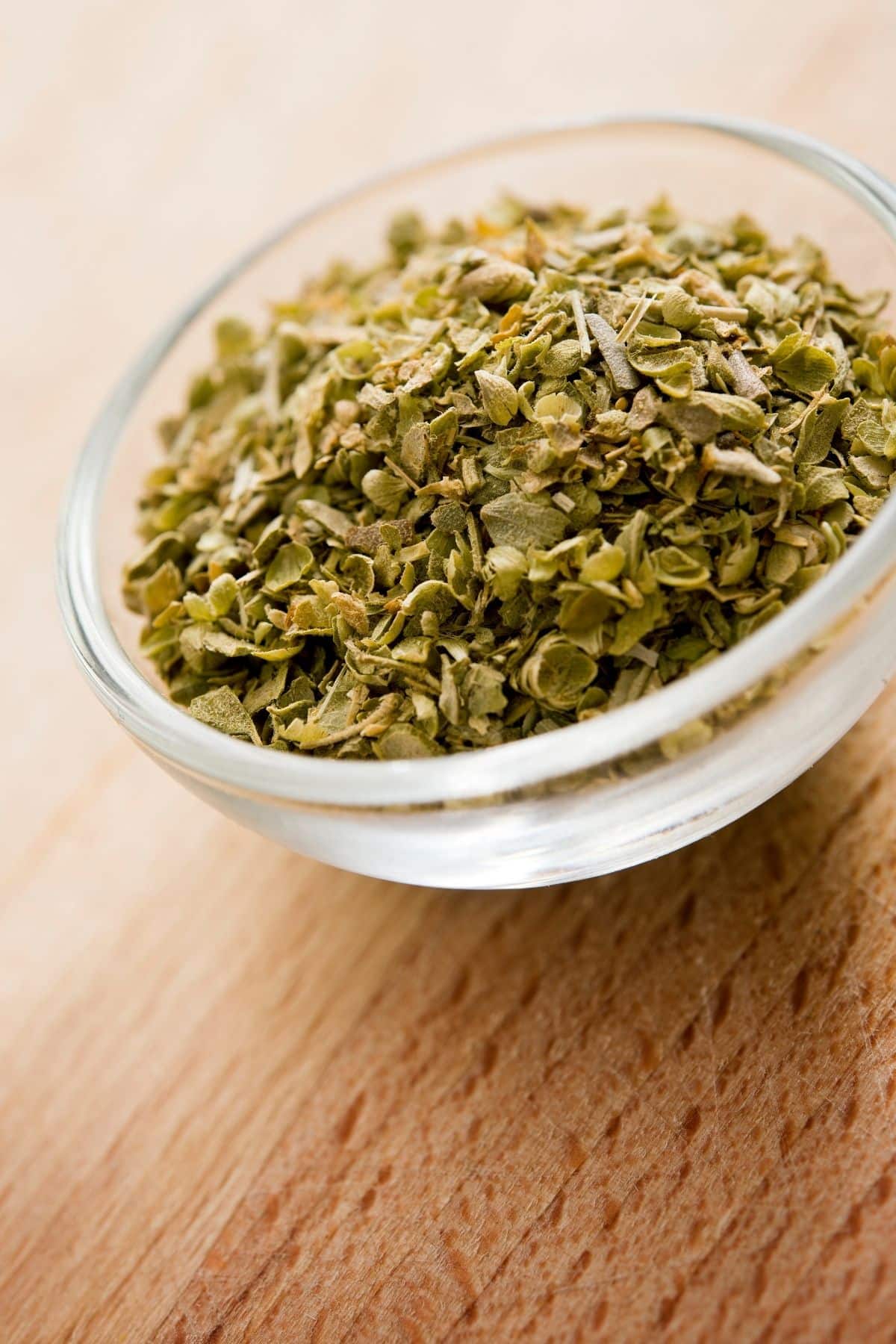
Oregano has that slightly bitter, minty pungency that’s so distinctive in bay leaves. It makes a great replacement in both tomato-based dishes and meat dishes.
Dried oregano also mimics the mild peppery taste of a dried bay leaf and is a good substitute.
Like bay leaves, oregano has some health benefits and is a rich source of antioxidants. It’s also believed to help reduce inflammation and block the growth of certain bacteria.
Mexican oregano is quite common and can be found at most grocery stores.
To replace 1 bay leaf, use 1/4 teaspoon dried ground oregano.
2. Dried thyme
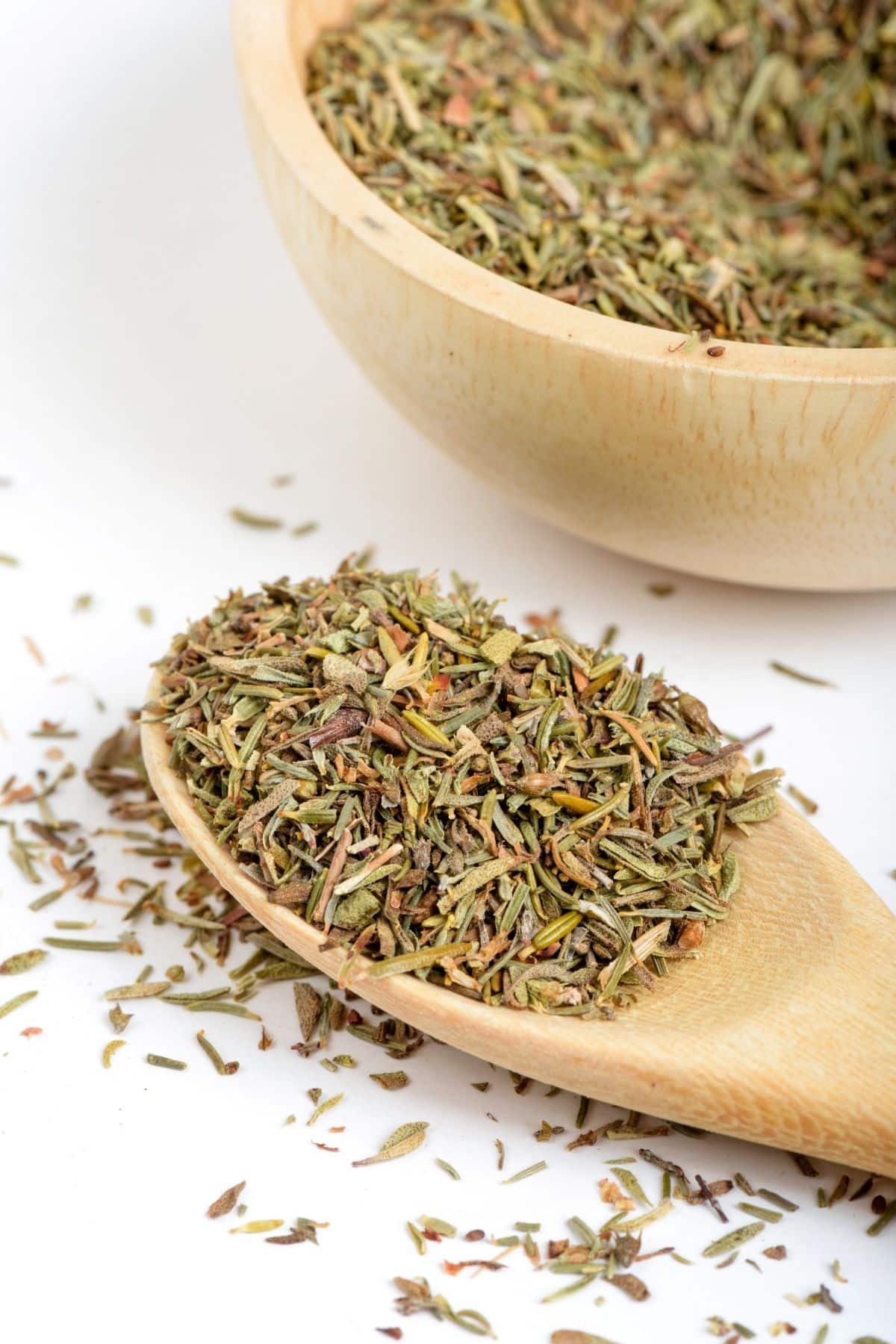
The subtle mintiness of dried thyme makes it the perfect alternative to bay leaves in your recipes, especially for lamb and beef dishes. Thyme is an aromatic herb that is a great alternative to a fresh bay leaf.
As an added bonus, regularly including thyme in your recipes may even help boost your mood!
To substitute 1 bay leaf, use 1/4 teaspoon ground dried thyme.
3. Dried basil

When it comes to bay leaf substitutes, basil is a logical choice – after all, it is a member of the mint family and also has that slight bitterness you’ll need. Don’t worry, the minty flavor and bitter taste are very mild.
Dried basil is preferable to fresh basil when using as a substitute for bay leaves, which has a much stronger anise flavor that could alter the taste of your finished dish.
Basil is best used in tomato-based pasta sauces and stews, or in Italian cooking.
Instead of 1 bay leaf, use 1/4 teaspoon of dried basil.
4. Juniper berries
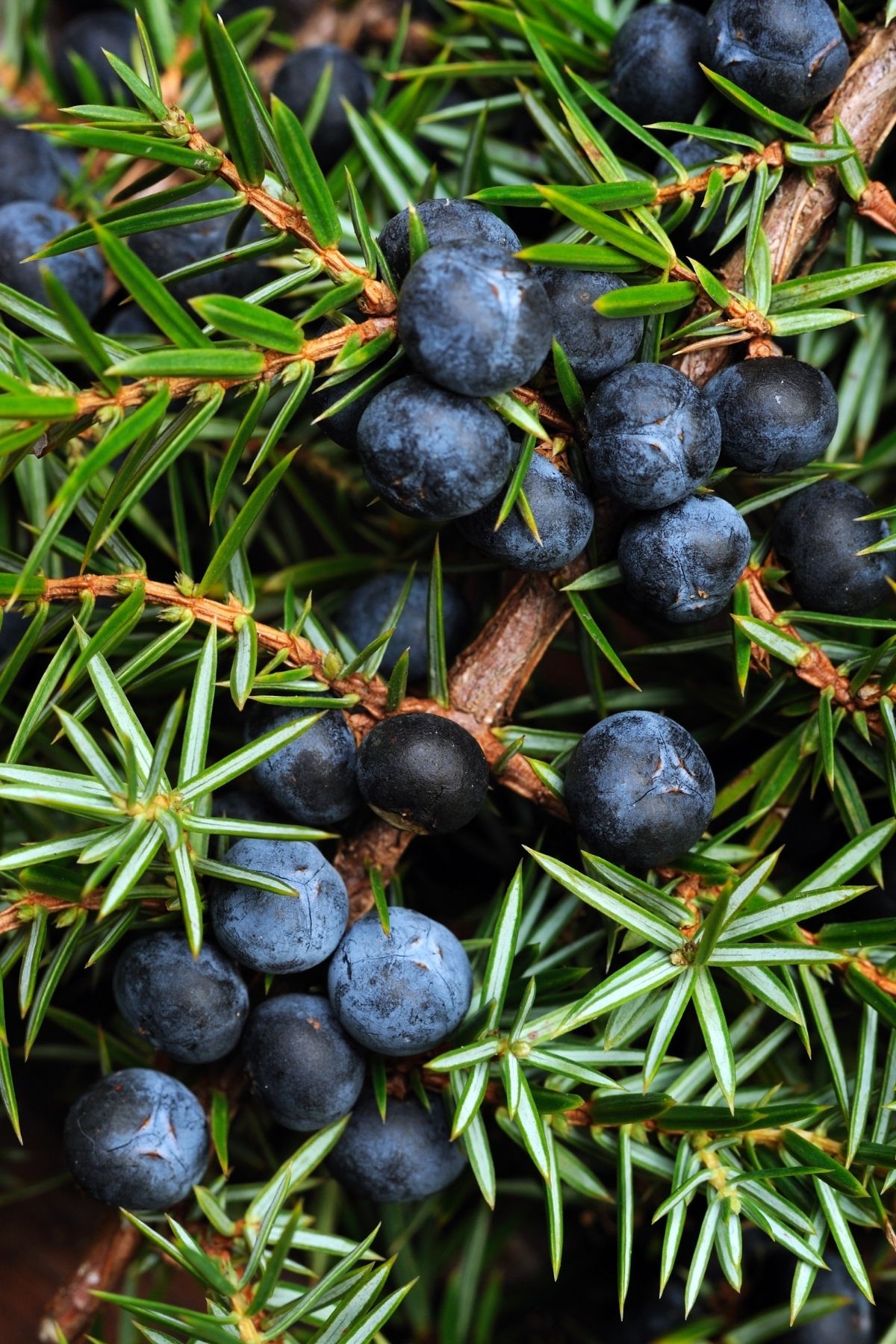
These are not berries at all – they are actually the seed cones of the juniper plant – and they have a peppery, pine-like taste that works perfectly in dishes calling for bay leaves.
They are very small but have a strong flavor, so you might prefer to add them to your dish whole then retrieve them before serving. If the more robust flavor is what you’re after, then you can grind them instead.
Note: Although the small amount used in cooking is usually safe, you may still want to check with a medical professional before serving foods containing juniper berries to young children or pregnant women.
For 1 bay leaf, substitute 3 juniper berries.
5. Boldo leaves
If available in your area, boldo leaves make a great replacement for bay leaves because they are actually related to them. Boldo leaves come from the Boldo plant.
They are native to the coastal regions of Chile and – like bay leaves – they taste slightly bitter, with notes of pine, although they tend to be quite a bit more powerful. They are good with lamb and especially tasty with fish.
A boldo leaf is an excellent substitute.
For 1 bay leaf, use half a boldo leaf.
Bay Leaf Substitute Summary
Here’s a chart summarizing the pros and cons of using the suggested alternatives for bay leaves in your cooking.
| Substitute | Pros | Cons |
|---|---|---|
| Dried Oregano | Similar bitter, minty pungency; Great for tomato-based and meat dishes; Rich in antioxidants; May reduce inflammation and block bacterial growth | Strong flavor may overpower delicate dishes |
| Dried Thyme | Subtle mintiness; Perfect for lamb and beef dishes; May boost mood | Not as versatile for all dish types |
| Dried Basil | Slight bitterness; Best for tomato-based sauces, stews, and Italian cooking | Fresh basil has a strong anise flavor that can alter the dish |
| Juniper Berries | Peppery, pine-like taste; Works well in dishes calling for bay leaves | Strong flavor, may need to be removed before serving; Check safety for young children and expectant moms |
| Boldo Leaves | Related to bay leaves; Slightly bitter with notes of pine; Good with lamb and fish | More powerful flavor; Limited availability |
Bay Leaf Potential Health Benefits
In addition to enhancing the taste of whatever they’re cooked with, bay leaves may offer some health benefits!
Some studies have indicated that they could help curb the growth of certain cancer cells, while a 2008 study showed that bay leaves can be useful for people with type 2 diabetes.
Note: Always remember to take bay leaves out of your dish at the end of the cooking time.
Unlike many other herbs, bay leaves really don’t soften very much, even if they’ve been bubbling away in a stew for hours. In fact, they can be so incredibly brittle and sharp that they can present a choking hazard and have even been known to cause intestinal perforation.
More Substitute Articles You Might Like
- Substitutes for Olive Oil
- Substitutes for Coconut Aminos
- Substitutes for Dill
- Substitutes for Italian Seasoning
- Substitutes for Lemongrass
- Substitutes for Marjoram
- Substitutes for Nutritional Yeast
- Substitutes for Oregano
- Substitutes for Sage
Don’t Miss These Helpful Cooking Articles
Conclusions
Experimentation is part of the fun of cooking and I hope that one of these ideas has rescued your recipe. With any luck, you may have discovered that a simple substitution makes your finished dish taste even better than the original!
Don’t forget to join my newsletter list to get exclusive clean eating recipes and tips. The newsletter is 100% free with no spam; unsubscribe anytime.
About the Author: Carrie Forrest has a master’s degree in public health with a specialty in nutrition and is a certified holistic nutritionist. She is a top wellness and food blogger with over 5 million annual visitors to her site. Carrie has an incredible story of recovery from chronic illness and is passionate about helping other women transform their health. Send her a message through her contact form.


